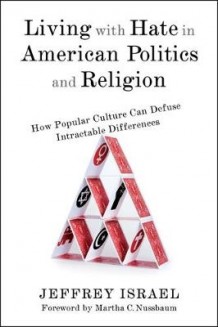(THIS ARTICLE IS MACHINE TRANSLATED by Google from Norwegian)
Battle of Gettysburg in southeastern Pennsylvania, one of the largest, by number of soldiers, was in the American Civil War. It took place over three days in early July 1863, and on those same Christmas days, thousands of modern-day Americans meet on the site to recreate the battle (the reenactmentt). It has the character of a folk party. Enthusiasts show up in real uniforms and with weapons as they had at the time, and of course have the event a website, where spectators can buy tickets and attend the riots.
Living history
The phenomenon is called "living history". Dozens of similar events exist around the world – with Waterloo and Hastings as a couple of classic examples – and everywhere the educational value is emphasized. After all, the young generation is learning something about the history of the fatherland, it is claimed. But is it possible that precisely the Gettysburg days are, in fact, a kind of ritualized hatred in the white population of the Southern States, expressed in this way in the form of seemingly innocent play?
A kind of ritualized hatred in the white population of the southern states.
It is one of the most relevant questions that Jeffrey Israel poses. He is a professor of religion at Williams College in Massachusetts, and in his latest book, he addresses how hate is an integral part of American popular culture, and from there becomes a factor in the country's politics and religion.
White and Christian
It is a trapped hatred that lies beneath the surface. We meet it here and there with the predicate "The Inner Pig Dog". These are the little racist or male chauvinist remarks that live in the private sphere and come out between the sidelines, and although it is usually dismissed as a somewhat harmless word flood, there may well be some much deeper things behind.

The United States, in which the author lives and submits his analysis, prides himself on being the great crucible and the land of opportunity, and he himself has experienced how national pride can flow in certain contexts.
He is based on Leo Strauss and Franz Dewlapwho in their thinking both expressed strong indignation over the weakness and falsehood of liberalism. Stereotypical perceptions, racial hierarchy and social exclusion will be a constant in the liberalist state, Strauss writes thus. One of its basic elements is equality before the law, but this beautiful principle lives side by side with inequality outside the law in the privacy sphere. Under these conditions, a powerful core group that sees itself as culturally representative of the national majority will have the right to define social norms. In the United States, this group is white and Christian, and it builds the national narrative that must apply to the entire community.
Mardi Gras and Gettysburg

The minorities just have to organize themselves and follow along. As Jeffrey Israel sees it, this is what we experience at Mardi Gras, the annual New Orleans carnival. Like the war scene at Gettysburg today, it is shaping up as a colorful and lighthearted popular party, and in the big picture there is what one can define as "political laws".
A political love that creates a community. But behind the idyll, he thinks that at Mardi Gras there is a lot of frustration among the African American people over past injustices and that the carnival is merely an attempt to buy itself an admission ticket to the national community, even though the injustices still exist.
People will always find ways to express the unforgivable through play.
Thus, Mardi Gras and Gettysburg become two sides of the same case, and they become an important part of the explanation that the Americans chose Donald Trump in 2016. He appealed precisely to the domestic swine, to all the frustrations in the private sphere, and especially to the many who probably see themselves as part of white America but who nevertheless do not feel like part of the normative society. This is the large group that Richard Nixon referred to back in the 1970s as "the silent majority".
The doctor covers unresolved frustrations
This may not be so surprising. But it is quite thoughtful that a key to understanding may lie in an analysis of the concept of 'play'. This has already been reversed by research, and here it is put into a new context. The examples mentioned can be considered play, and the same can be true of everything from veganism over BDSM to being a member of the local cycling club. Anyway, the game still covers some unresolved feelings and frustrations.
Here the author proposes a solution. Basically, it is about personal identity, which is a very complex size, and here it is important to understand that not all elements of identity are equally positive. Modern society is very busy repairing the sins of the past, but this is rarely possible, because while the surface may present itself as neat and tidy, people will always find ways to express the unforgivable through play. Mardi Gras and Gettysburg again.
People do not always play with their good will, so it is important to understand that the play almost always covers something obscure. But instead of insisting that one can get beyond these things, which is an impossibility, one must allow the unforgivable to remain unforgivable. This makes it part of people's personal identity.






